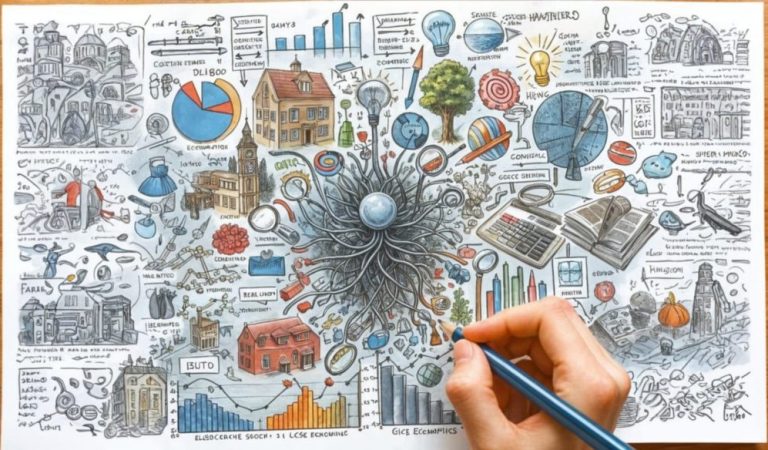
Beyond Grades: The True Purpose of Education and Mock Assessments Explained
To Learn, To Evaluate, To Grow: Assessments and Evaluation from Tutopiya
The Role of Syllabi and Exams in Education
Why must we follow a syllabus set by experts? Why are exams necessary? As students, we’ve all questioned the difficulty of certain subjects and dreaded exams.
Must Read: IGCSE Exam Prep with Group Classes in Singapore
The Purpose of Education
Education isn’t just about achieving perfect grades; it’s a tool for students to explore, grow, and apply knowledge to lead fulfilling lives. The real goal is to equip children with the skills they need to become well-rounded individuals, ready to contribute to society. As Nelson Mandela famously said, “Education is the most powerful weapon which you can use to change the world****.****”
Must Read: Ace IGCSE with Tutopiya Mock Assessment Program 2024
Unlock Your Potential with Mock Assessments Start Your Free Trial!
The Importance of a Positive Mindset
When children develop a positive attitude towards learning, they tend to excel academically and contribute positively to society. This is why we follow a structured syllabus and why studying diverse subjects matters. Each subject adds to a child’s growth by introducing relevant knowledge that suits their age.
Why Syllabi and Exams Matter Structured syllabi and organized education systems help students grasp essential theoretical and practical knowledge. As children grow, they absorb information quickly, making early education vital. Schools evaluate students’ understanding of key concepts through assessments. These evaluations are based on child psychology and vary by grade level. Controlled written exams allow students to demonstrate their knowledge and track their progress.
Have a Look: Mock Assessment Structure
What are the benefits of the Mock Assessment?

The Benefits of Mock Assessments
1. Assessing Academic Performance Mock exams help gauge a student’s understanding of subjects. Unlike theoretical learning, these evaluations highlight strengths and weaknesses, allowing students to address their knowledge gaps.
2. Receiving Personalized Academic Guidance After reviewing mock exam results, students can seek support from tutors or academic coaches. Tutors gain insight into areas needing improvement, which allows them to provide customized guidance, study plans, and structured schedules for the student’s long-term success.
Must Read: Study Planners: How to Study Effectively & Efficiently
3. Enhancing Exam Writing Skills Mock exams also improve students’ exam-writing abilities. Many struggle to apply theoretical knowledge in exams, especially with structuring answers. Mock exams provide practice, enabling students to refine their approach to different question styles.
4. Boosting Confidence Encouragement and positive feedback during these formative years can significantly impact a child’s confidence. As students see the results of their hard work, their belief in their potential strengthens, boosting self-esteem and motivation.
5. Subjects Covered in Mock Assessments Mock Assessments target students from Year 7 and above, focusing on core subjects like Biology, Physics, Chemistry, Mathematics, and English. Secondary subjects such as English Literature, Computer Science, Business Studies, Economics, and Accounting also follow the same format as final exams, preparing students rigorously.
Must Read: 9 AI-Powered Tools for IGCSE Exam Prep
Boost Your Confidence and Skills with Mock Assessments Sign Up Today!
Subjects Covered in Mock Assessments
Mock Assessments target students from Year 7 and above, focusing on core subjects like Biology, Physics, Chemistry, Mathematics, and English. Secondary subjects such as English Literature, Computer Science, Business Studies, Economics, and Accounting also follow the same format as final exams, preparing students rigorously.
FAQs:
1. When is the best time to take Mock Assessments?
Mock Assessments are ideal once the syllabus is covered, giving students a solid foundation. Some institutions allow early assessments, helping students identify strengths and weaknesses sooner. Ultimately, students should decide based on their preparedness.
2. What’s the difference between Pre-Mock and Mock Assessments?
Pre-Mock and Mock Assessments are similar. Schools may offer multiple rounds of exams (Pre-Mock, then Mock) to increase readiness, with each round potentially increasing in difficulty.
3. Do Mock Assessment results predict final exam grades?
Mock results can be a strong indicator, but they don’t guarantee final exam grades. Some students excel further in finals, while others improve significantly. Mock exams help identify areas to focus on without added pressure.
4. How can parents support their children during Mock Assessments?
Parents can support by encouraging their children to see Mock Assessments as learning tools rather than high-stakes tests. Offering positive reinforcement and avoiding excessive pressure helps students focus on improvement and perform their best.
Written by
Tutopiya Team
Educational Expert
Related Articles

What’s Next After A-Levels? Figuring Out Your Next Step
Comprehensive guide and expert insights on educational topics for IGCSE, IB, and international curriculum students.

IGCSE Economics Revision Resources, Past Papers, and More
Master IGCSE Economics with essential revision resources & past papers. Ace your exams with global support. Ideal for IB & A-level students too.

Why Personalized Learning Beats Group Classes for IGCSE
Comprehensive guide and expert insights on educational topics for IGCSE, IB, and international curriculum students.


